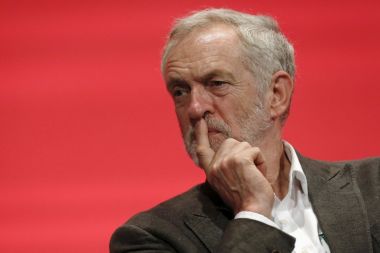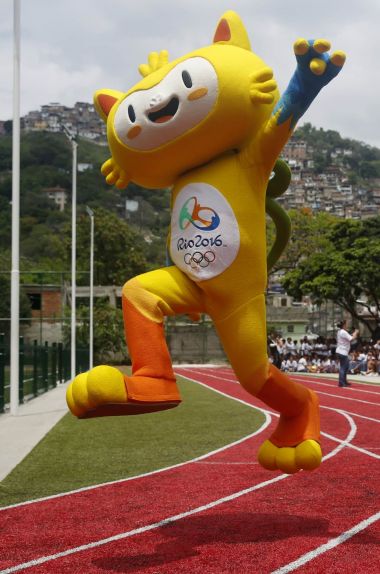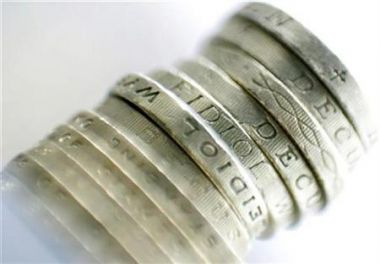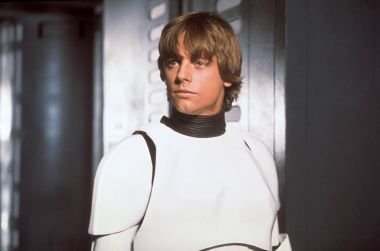10 things to look out for in 2016: Part Two
Our culture is changing at breakneck speed. Like an ocean current that can pull you under or propel you forwards, it can be a hindrance or a help to serving God in the world today. Spending time thinking about the way things are changing can protect us from simply going with the flow so I offer you some reflections on what we could be expecting on the year ahead. You can see the first five here.
6. The Predictable Unpredictability of Politics

After the shock result of the 2015 UK election which up until the exit polls almost no commentator saw coming – a shock landslide for the SNP – and then the equally surprising appointment of Jeremy Corbyn as Labour leader, it seems that UK politics could be entering a new, unpredictable phase. Will the new politics see greater participation of the wider public in politics? In the last election: 52 per cent of Conservative candidates, 19 per cent of Labour and 36 per cent of UKIP candidates were privately educated. Will we see new parties form in the UK as happened in the 1980s when the SDP was founded by four senior Labour Party moderates? With very visible divisions within the Labour Party, this could be a factor in 2016.
The degree of controversy in the UK political system pales in comparison with the US scene, where November will see the Americans go to their polls to elect Barack Obama's successor. Its too early to tell who the Republican candidate will be, let alone who the future president will be. But it does seem likely that whoever the Republican candidate is, although they may appear more right-wing in the primaries they often move to a more centrist position in order to win over wavering Democratic voters.
7. The Global Summer of Sport
It's another bumper summer of sport with both the European Cup and the Olympics. Expect exciting clashes as England are drawn in the same qualifying group as Wales, prepare for some magic from Gareth Bale and the usual roller coaster of the whole of England expecting to win the World Cup and then getting knocked out on penalties by the Germans.

Chelsea fans may tell you otherwise, but we could see the reigning Premiership champions in a relegation battle. It's not without precedent: in 2004 Leeds United went from consistently being in the top five of the top flight of English football to being relegated.
The 28th Olympic Games of the modern era will take place in Rio this summer. Expect to see Jesus take centre stage as the iconic Christ our Redeemer statue is the unmissable landmark that towers over the city. Sadly, controversy clouds the Games as drug abuse has been uncovered to be rife in the sport after the Russian team were found guilty of systemic cheating through the use of steroids. Will we see Usain Bolt make yet more history and the heroes of the London Olympics bring more gold home? Organisations such as Christians In Sport will rightly remind us of the huge opportunities for witness and evangelism through sport and I pray that the Church will make the most of them. I also hope that through a growing recognition of a theology of the body (keep your eyes pealed for theologian Paula Gooder's excellent forthcoming book on this subject) that the Church will recognise that caring for our bodies is a spiritual discipline. Perhaps a summer of sport will help us consider a more full-bodied Christian worship.
8. The Normalisation of Refugees
With ISIS showing no signs of relenting from their ferocious and deadly campaign to see a new Caliphate installed and the ongoing brutal slaughter of those that stand against them, it seems unlikely that the bombing campaign in Syria will be able to end the war without further on-the-ground engagement. With more conflict ahead it is very likely that the refugee crisis is set to continue. Winter slowed the number of refugees taking the perilous journey across the Mediterranean but expect the journeys to start again in earnest in the spring.

Having visited Lebanon I wonder how long that tiny nation can sustain 1.5 million refugees, so sadly we might see an exodus from the surrounding nations and more attempting to come to Europe. So far the winter has been unseasonably mild. If winter comes in earnest, with so many vulnerable families and unaccompanied refugee children stuck in perilous circumstances in Europe, tragically we will see more dead children. The refugee crisis is one of the defining issues of the decade and so expect to see much more of it in 2016. The question is whether the Church will play its part in offering hospitality to those in need, whatever their nationality or history. In my work through Home for Good we have been speaking with local authorities up and down the country who have seen record numbers of unaccompanied refugee children and they are in real need of recruiting more foster carers. This is likely to increase in 2016. The question will be whether the Church stays engaged when the news story has moved on. Russell Rook, chair of the newly formed organisation Church Response for Refugees, states: "In the last year more than 15 million people have been forced to flee their homes in the Middle East alone. A global refugee crisis that has run for the best part of a decade is set to continue. The only question for the Church in an era of mass migration is how we live up to our defining call and welcome the stranger, asylum seeker and refugee at our doors, in our streets and on our borders?"
9. The Globalization of Inequality

The move to a system of Universal Credit replacing tax credits. The Citizens Advice Bureau is predicting that because of a built-in delay of at least 42 days before claimants receive payments many will face crisis and not be able buy food or pay bills. Those expected to fare worst with the new universal credit rules are likely to be lone parents, disabled people and couples with children who rent their home rather than have a mortgage. 2016 is also the year that Oxfam predicts that the richest one per cent of the world will own more than all the rest of us put together. Ahead of the the Davos World Economic Forum, Winnie Byanyima, Oxfam's executive director, warned that is it an explosion in inequality that is holding back the fight against global poverty. One in nine people do not have enough to eat and more than a billion people still live on less than $1.25 a day. 2016 could become the year of global inequality. Perhaps things will change, though, as 2015 saw one of the leading faces of the one per cent, Mark Zuckerberg, pledge to give 99 per cent of his Facebook shares away ($45 billion worth). Perhaps we can learn from him and others so that generosity will be the Church's calling card in the age of greed and the year of inequality.
10. The (continued) Comicification of Cinema

With Star Wars fever breaking out at the end of 2015 and eight more films planned in the next few years, will we see a renaissance in science fiction in the cinemas? With the unprecedented success of the original Star Wars: A New Hope, other studios sought to get in on the sci-fi upsurge. Will we see a similar effect in the wake of The Force Awakens? With Independence Day: Resurgence and Star Trek: Beyond already slated for the summer blockbuster season it looks highly likely. The question will be whether it will be new films or further reboots that will win the day. New sci-fi films for 2016 include: Passengers featuring Chris Pratt and Jennifer Lawrence, Passage to Mars with Zachary Quinto and Charlotte Rampling, The Circle featuring Emma Watson and Tom Hanks and Replicas with Keanu Reeves. If you are a comic fan then 2016 will be the year of showdowns, with Batman vs Superman: Dawn of Justice and then Iron Man vs Captain America in Marvel's Civil War movie. Not to mention Suicide Squad and Dead Pool.
The classic conflict of good versus evil still holds an audience captive. Perhaps it could be a breadcrumb trail to help people resolve the conflict we all face inside of us, where the fight between good and evil begins. Perhaps there's an opportunity for Christians to tell their stories and point to how Christ alone is the liberating hero we've all longed for – not just science fiction but historic fact.











